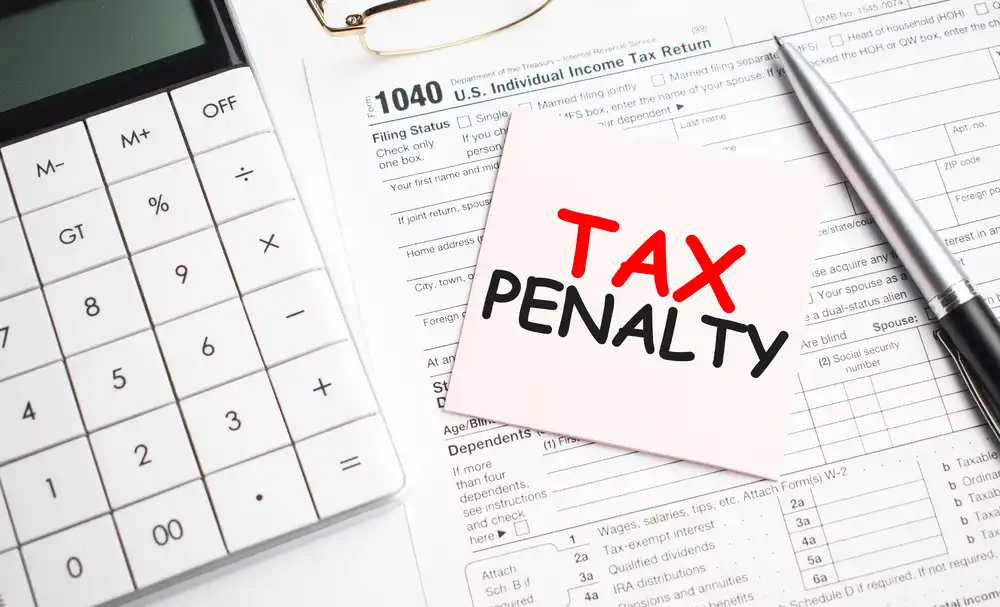Tax problems can come up when you least expect them. When they do, they can cause a great deal of stress. They can even derail your personal and professional plans. Whether you’re an employee with a complicated compensation package, a small business owner, or someone with a diverse portfolio of investments, dealing with tax problems can be overwhelming. But a CPA can help you with these problems and even prevent issues later on.

Common IRS Penalties
Some of the common penalties imposed by the IRS include the following:
- Failure to File and Failure to Pay Penalties — These penalties are usually imposed automatically, with a 5% penalty for late filing and a 0.5% penalty for late payment.
- Accuracy-Related and Negligence Penalties — These are common for audits that involve high-dollar amounts. The average penalty for these cases is 20% of the underpayment, but it’s rebuttable with a “reasonable cause and good faith” defense.
- Fraud Penalties — These are among the highest of tax penalties, with 75% of the taxes in question. But they’re only imposed in the most serious cases. They also require proof of willingness and intent to evade.
If you’re facing tax penalties, you might be able to request an abatement. This refers to the partial or even complete removal of tax penalties if specific legal defenses apply. Be sure to speak to a tax professional for more information.
Common Grounds for Penalty Abatement
The IRS looks at abatement requests according to a specific set of criteria, which is why hiring professional help is so critical in these cases. Some of the common grounds for abatement include the following:
- Reasonable Cause Relief — This can be claimed when certain circumstances (such as illness, relying on incorrect advice, or natural disasters) have led to your noncompliance, but ordinary care and prudence must be proven.
- First-Time-Penalty Abatement (FTA) — The IRS will offer a one-time penalty relief for taxpayers with a clean history, but it’s often used strategically with other grounds.
- Statutory Exceptions or IRS Errors — This isn’t used as often, but it’s powerful if it can be proven. Some examples can include IRS processing errors and misleading communication.
- Reliance on a Tax Professional — This is often the strongest defense for people with a high net worth, but it requires proof that the taxpayers relied on the advice in “good faith.”
- Fraud Penalty Defense — The IRS bears the burden of proof for cases of intentional tax evasion. It requires a number of strong legal challenges. In many cases, it will result in litigation.
Some of the common defenses that are used to approve an abatement include the following:
- Lack of intent.
- Clerical errors.
- Misunderstanding of reporting requirements.
Defending penalty abatements requires someone with knowledge of important legal rights and procedures that attorneys and CPAs can provide.
The Role of a CPA in Dealing with Tax Problems
A Certified Public Accountant (CPA) is more than someone who just crunches numbers. Individuals and businesses who are dealing with tax difficulties can benefit from hiring a CPA. This person can be a strong ally when it comes to navigating the complicated landscape of tax regulations. He or she can also take care of any problems that may come up in the future.
When it comes to resolving tax problems, CPAs can offer a variety of services. Some of them include the following:
- Audit representation and support.
- Dispute resolution with the IRS.
- Penalty abatement and reduction.
- Help with back taxes and unfilled returns.
- Strategic tax planning to prevent future issues.
They play a multifaceted role in taking care of tax problems. They can do a thorough review of your financial situation. They can also look at your tax returns, source of income, as well as any deductions and credits for which you qualify. They can even identify any discrepancies or potential areas of concern.
The Benefits of Working with a CPA to Deal with Tax Issues
Tax issues can get complicated, but working with a CPA can have the following advantages:
- An in-depth knowledge of tax laws that affect various forms of income and deductions.
- An understanding of state and local tax requirements.
- A familiarity with industry-specific tax issues for business owners.
- Continuous education on changing tax laws and IRS procedures.
This kind of expertise allows them to come up with tailored solutions for addressing specific tax issues and even stay ahead of them. If you’re looking for a CPA in Corpus Christi that can help you minimize your chances of being penalized by the IRS, be sure to reach out to Jennings & Hawley.
